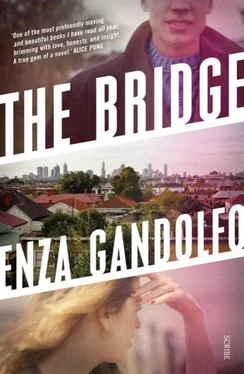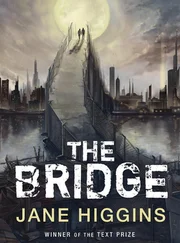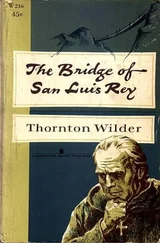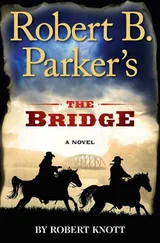‘Once they’re destroyed, they’re gone. I’ve got no idea what I should do. What’s the right thing to do?’
‘No right thing here.’
‘She never said what to do with them.’
‘She didn’t know she was going to die.’
‘I can’t keep them. And I can’t give them away.’
The garden was rustling and shimmering. The fire was dying out. If it died out, Jo wouldn’t be able to burn the journals. She had no idea how to start a fire. If she didn’t burn them, she’d have to carry them with her forever. ‘Would you take them?’ Jo asked the man.
He laughed. ‘What would I do with a girl’s journals? They’re full of girls’ stuff, boys and bras and complaints about her parents who won’t let her go out.’
A car alarm screeched. Jo woke.
Were the journals meaningless? Were Ash’s journals full of drivel, of teenage angst? Of frivolous things that didn’t matter?
Inside the pages was Ash’s voice. Jo knew she had no right to read them, but should she give the journals to Ash’s parents or destroy them? Would reading the journals intensify Rae and Alex’s grief, their loss? Or was it possible that reading the journals could be an antidote to their grief?
In the weeks after her return from Portarlington, Jo continued her early morning walks, usually after her shift, in the hour of semi-darkness before the sun rose, when the horizon was powdered with soft reds and oranges, and in the sky the moon was reluctant to give the night away. Avoiding the bridge and the village shopping area, she devised walks that took her to unfamiliar streets, through the reserves that skirted the river — Donald McLean, Anderson, and Stony Creek — hoping to avoid memories, to avoid Ash, hoping to find a new and unrecognisable suburb in which she might see the possibility of living. Down past the tanks, along the river, sometimes towards Williamstown, glancing across Port Phillip and imagining she could see clear across to Portarlington, the pier, and The George. Some days she allowed herself to remember Justin and the kiss even though she knew there was no point lingering on the impossible.
‘You should wear a suit, something plain and serious,’ Sarah said. She’d arrived early with some papers for Jo to sign. Her next appointment wasn’t until ten, so she’d said yes to a coffee. It had been a hot night and the house was stuffy, so they took their drinks outside, Sarah and Mandy on faded canvas deck chairs and Jo on the wooden step. In the background, the usual rumble of the traffic had been joined by screeching calls from the local magpies. The garden was dry, the leaves of some plants curled and sagged, and the stems were brittle and ready to snap. There was a distant smell of smoke from the fires around Macedon.
‘What difference will what I wear make?’ Jo asked. Of course she knew she had to wear something serious — it’s not like she’d turn up in her jeans and t-shirt, or some little frivolous party dress. She understood the importance of looking respectful.
‘It’s hard to measure the difference clothes make — more when there is a jury, but even with a judge, it could have an influence. People think the law is set down, that it’s all about the facts, measureable and solid, and that’s true, but the law is also like anything else. There’s the human factor.’
The talk of clothes and the judge brought the court case closer, and Jo floundered for the words to express what she was feeling, a sudden rush of emotion sweeping her up as if she were a twig in the path of a flooding torrent.
‘What should she wear?’ Mandy asked.
‘A suit. A blazer and a skirt, dark blue, and a plain top underneath the jacket — something subdued, grey or smoky blue.’
Jo heard them talking about the suit and the shoes and where best to buy them as if she were drowning and their voices were faint murmurs from a distant shore. Those voices plunged her into the past, to the afternoon four months earlier when Ash was sitting on the same wooden step, talking to Kevin, her legs stretched out across the small gravel path that led down to the garden. Back to the afternoon she read Ash’s journal. The smooth red cover. And the pages filled with Ash’s writing, pages and pages about Kevin, about school, about Ash’s dreams… If only she hadn’t read the journal. Was reading it the act that changed the course of her life, of Ash’s life? Or does every act, every moment, have the power to shift and change the course of life? She recalled a movie, Run Lola Run , that she and Ash went to see at ACMI one night during their ‘arthouse film phase’. Lola has to take 100,000 deutschemarks to her loser boyfriend — Ash said the most unbelievable part of the film was that Lola would hang out with such a loser and want to save his life. Lola leaves the money behind on the train, where it’s picked up by a homeless man. Desperate, Lola goes to the bank to borrow the money from her father. The film has three scenarios, beginning each time from the same starting point. However, each scenario develops in different ways and has different outcomes — for Lola and for her boyfriend and for all the people she bumps into along the way. If only Jo could rerun her life from that point when her hand moved across the table and picked up the journal. If only Jo could rerun her life from the moment she stepped into the car on the night of the accident.
The shriek of brakes and a loud car horn, followed by a man shouting, ‘Fucking look where you’re going!’ comes through the front door, down the hall, to reach them on the verandah. An accident avoided.
‘We can go shopping on my day off,’ Mandy was saying. ‘There won’t be so many people around. What do you think, Jo?’
‘I don’t know what the point is. I don’t care how long they lock me up for, so anything will do.’
‘Don’t say that, Jo,’ Mandy said. ‘Don’t say that.’
‘You have to find something,’ Sarah said. ‘Something you can do in the world, something that makes it better for other people. If I didn’t have my work, if I spent my whole time thinking about myself, I would’ve slashed my wrists a long time ago.’
‘I’m not good at much,’ Jo said.
‘When I was a child, when I fought with my mother, I’d run to my nan. She used to say to me, if you want to be happy, don’t think about yourself all the time. Think about leaving the world a little better than you found it. She didn’t mean big things — for her it was looking after her family, keeping an on eye on the older people in her street, helping out at the refugee centre once a week. She used to like to help the people there with their English.’
‘Is she still alive?’ Mandy asked.
‘Yes, but she has dementia,’ Sarah said. ‘Last time I went to visit, she didn’t recognise me, didn’t know my name. Sometimes there’s a little spark, and I think she remembers bits of the past, from when I was a child. My mother says I’m imagining it and that Nan has no memories left at all. I don’t trust her perspective on Nan. They never got on.’
What would it be like to lose your memory and forget everything? Would it be a relief? Would the weight lift off your shoulders?
‘When things aren’t going well, when I’m worried about stupid things, like not fitting into size twelve jeans, I think about what Nan would say: Pick yourself up , girl, and get on with it. You’ll have to get on with it, Jo, with life. There’ll be a life after all of this is over, and you should plan for it.’
‘I guess.’ Jo shrugged. ‘I’ll see you later, Sarah. Thanks for the advice.’ Jo left her mother and Sarah talking, put on her runners, and headed for the bridge. She hadn’t been back for weeks, since the night she returned from Portarlington. Standing on the boardwalk under the eye of the bridge, she watched the birds — seagulls, sparrows, several cormorants, and other birds she didn’t know the names of — as they flew in and out of the mangroves that were part of the Stony Creek Backwash, oblivious to the West Gate Bridge overhead, to the trucks and cars on the Hyde Street. ‘Pick yourself up, girl, and get on with it,’ was Sarah’s advice. As if she’d fallen over during a game of netball, scraped her knee, and was overreacting. Jo had no idea how to pick herself up, or even if it was possible.
Читать дальше












